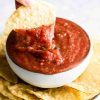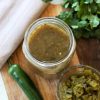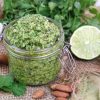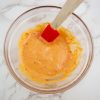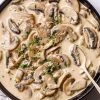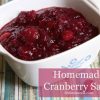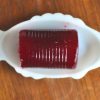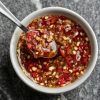Recipe for Duck Sauce A Comprehensive Guide
Duck Sauce: A Culinary Exploration
Recipe for duck sauce – Duck sauce, that sweet and tangy condiment, is far more versatile and intriguing than its simple appearance suggests. This exploration delves into the variations, ingredients, techniques, applications, and visual characteristics of this beloved sauce, revealing its rich history and culinary potential.
Duck Sauce Variations
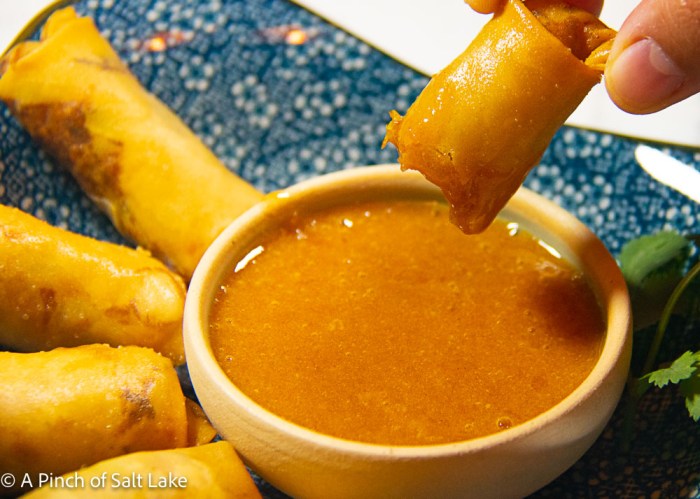
Source: apinchofsaltlake.com
Duck sauce isn’t a monolithic entity; it boasts a spectrum of flavors, each offering a unique culinary experience. The following recipes showcase this diversity, ranging from sweet to savory and even spicy.
| Recipe Name | Ingredients | Instructions (Simplified) | Flavor Profile |
|---|---|---|---|
| Classic Sweet Duck Sauce |
|
Combine all ingredients in a saucepan; whisk constantly over medium heat until thickened. | Sweet, tangy, slightly savory |
| Savory Ginger Duck Sauce |
|
Whisk together all ingredients except cornstarch. In a separate bowl, whisk cornstarch with 2 tablespoons of water until smooth. Add to the sauce mixture and cook until thickened. | Savory, gingery, slightly sweet |
| Spicy Mandarin Duck Sauce |
|
Combine all ingredients except cornstarch. Whisk cornstarch with 2 tablespoons water. Add to sauce and cook until thickened. | Sweet, spicy, tangy |
A vegan duck sauce is easily achievable by substituting key ingredients.
- Traditional Ingredient | Vegan Alternative
- Apricot Preserves | Apricot Jam (ensure no honey or gelatin)
- Honey | Maple syrup or agave nectar
- Soy Sauce (some contain fish-based ingredients) | Tamari or coconut aminos
The historical evolution of duck sauce is somewhat murky, but it’s believed to have originated in Chinese-American restaurants in the early 20th century, evolving from a simpler plum sauce base. Its current form is a product of continuous adaptation and regional variations.
Ingredient Exploration
Understanding the role of each ingredient is crucial to crafting the perfect duck sauce.
| Ingredient | Function | Potential Substitutions |
|---|---|---|
| Rice Vinegar | Provides acidity and tanginess, balances sweetness | White vinegar (less nuanced flavor), apple cider vinegar (adds a fruity note) |
| Soy Sauce | Adds saltiness and umami | Tamari, coconut aminos |
| Cornstarch | Thickening agent | Arrowroot powder (slightly clearer sauce), tapioca starch |
| Sweetener (e.g., apricot preserves) | Provides sweetness and body | Pineapple preserves, sugar, honey (non-vegan) |
Different vinegars impart distinct flavors. Rice vinegar offers a delicate sweetness and acidity, while white vinegar provides a sharper, more acidic taste. The choice depends on the desired flavor profile.
Cornstarch creates a slightly cloudy sauce, while arrowroot powder yields a clearer, more translucent result. Both effectively thicken, but arrowroot powder may require slightly less.
Cooking Techniques & Methods
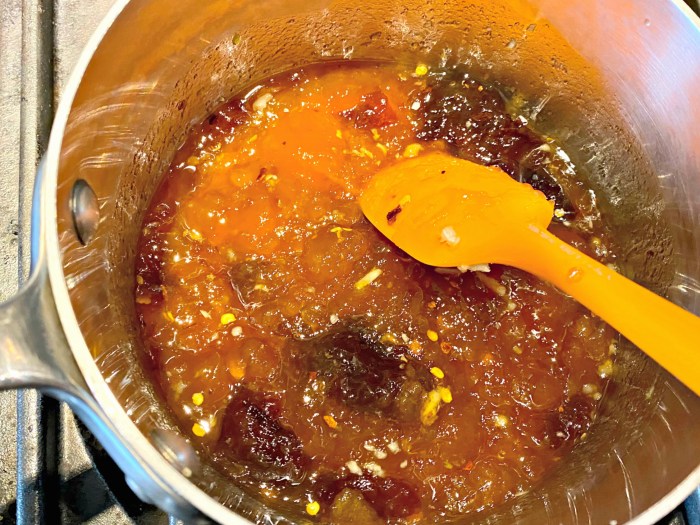
Source: farmhouse1820.com
Making duck sauce is a straightforward process. The following steps provide a clear guide.
- Whisk together all ingredients (except cornstarch slurry) in a saucepan.
- In a separate bowl, whisk cornstarch with a small amount of cold water to create a smooth slurry.
- Bring the sauce mixture to a simmer over medium heat.
- Slowly whisk in the cornstarch slurry, ensuring continuous stirring to prevent lumps.
- Continue to cook and stir until the sauce thickens to your desired consistency (typically 2-3 minutes).
- Remove from heat and let cool slightly before serving.
Remember to whisk constantly to prevent scorching and clumping. Adjust heat as needed to maintain a gentle simmer.
Consistency is easily adjusted. Longer cooking time results in a thicker sauce. Similarly, increasing the amount of cornstarch will yield a thicker consistency. Conversely, reducing either will result in a thinner sauce.
| Cooking Method | Advantages | Disadvantages |
|---|---|---|
| Stovetop | Even heating, allows for close monitoring of consistency | Requires more attention and time |
| Microwave | Faster cooking time | Can be prone to uneven heating and splattering; requires careful monitoring. |
Duck Sauce Applications, Recipe for duck sauce
Duck sauce’s versatility extends far beyond its traditional pairing with Peking duck.
- Sesame Chicken: The sweet and tangy sauce complements the savory chicken beautifully.
- Spring Rolls: A delightful dipping sauce that adds a unique twist.
- Stir-fried Vegetables: Adds a vibrant flavor dimension to otherwise simple dishes.
- Glaze for Pork Chops: Creates a sweet and savory glaze with a delicious shine.
- Grilled Shrimp Skewers: Provides a refreshing counterpoint to the grilled seafood.
Adapting duck sauce for dietary needs is relatively easy. For gluten-free, use tamari or coconut aminos instead of soy sauce. To reduce sodium, use low-sodium soy sauce or reduce the amount used.
Classic pairings include Peking duck, egg rolls, pot stickers, and various stir-fried dishes. These pairings work well due to the sauce’s ability to cut through richness and add a sweet and tangy counterpoint.
Visual Representation of Duck Sauce
Homemade duck sauce ideally possesses a glossy, translucent sheen with a rich, amber-brown color. This is achieved through careful cooking and the use of high-quality ingredients. A dull or opaque color often indicates uneven cooking or inferior ingredients.
The aroma of freshly made duck sauce is inviting, with prominent notes of sweet apricot or other fruit preserves, balanced by the subtle tang of vinegar and a hint of sesame oil and ginger.
Homemade duck sauce typically has a smoother, more vibrant color and richer aroma compared to commercially available versions, which often have a more artificial appearance and a less complex flavor profile.
Popular Questions: Recipe For Duck Sauce
Can I freeze duck sauce?
Yes, duck sauce freezes well. Store it in an airtight container for up to 3 months.
What happens if I use too much cornstarch?
Using too much cornstarch will result in a very thick, almost glue-like consistency. Start with a smaller amount and add more gradually until you reach your desired thickness.
How long does homemade duck sauce last in the refrigerator?
Properly stored in an airtight container in the refrigerator, homemade duck sauce should last for about a week.
Can I make duck sauce without cornstarch or arrowroot powder?
While cornstarch and arrowroot powder are common thickening agents, you can experiment with other options like tapioca starch or even a small amount of finely mashed potato. However, the consistency might differ.



